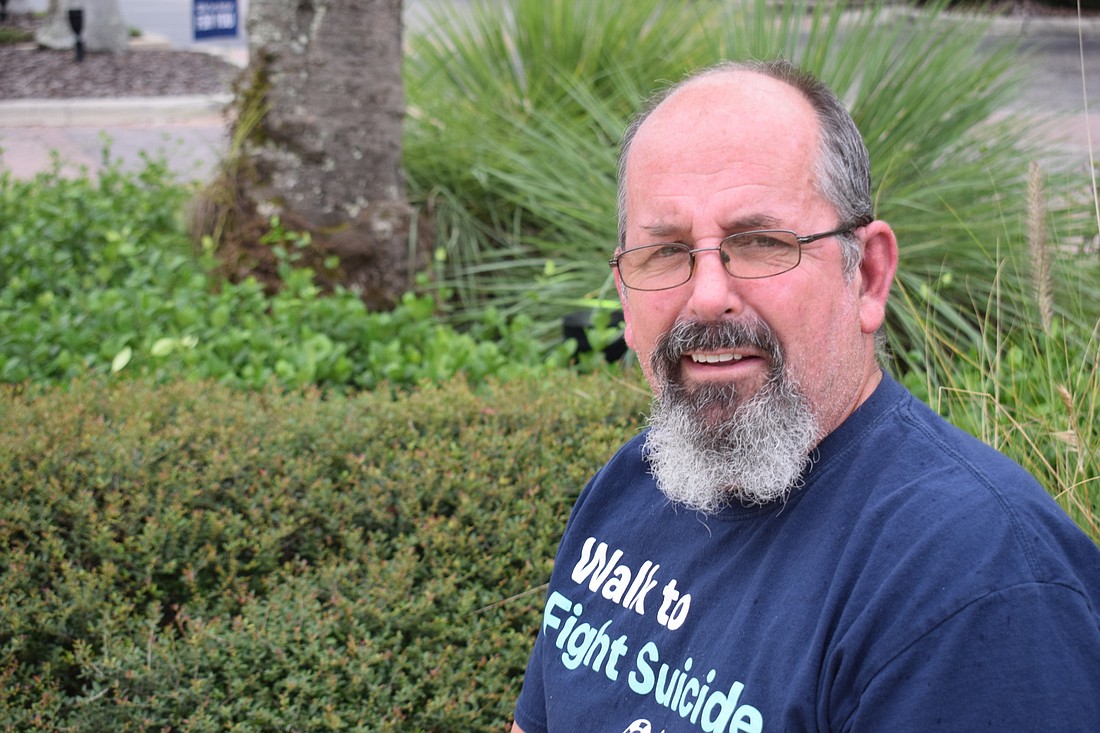- November 28, 2024
-
-
Loading

Loading

It was the ultimate stage of desperation when East County's Johnnie Calloway attempted suicide at age 19.
But Calloway, now 62, looks back on that time of his life as something more as well.
It was total confusion.
Growing up in Mayfield, Ky., Calloway's mother died when he was 5, and he said his father was abusive.
It led him alcohol, drugs, crime and two attempts to commit suicide at an early age before that third attempt when he was 19.
"The third time almost was comical," said Calloway, who was revisiting the horror of his past in advance of the Out of the Darkness Walk virtual event Nov. 15 to raise awareness and funds for the American Foundation for Suicide Prevention. "I was at a party and everyone was passed out (from taking drugs). I took a whole bottle of arthritis pain formula pills.
"But when I swallowed the last one, I changed my mind and I called 911. Then I thought about it again and I decided to go hide in a field."
The emergency responders arrived and knocked on the door, but nobody knew why they were summoned so they left. Calloway watched as they left, then changed his mind again about killing himself, returning to the house. He eventually received help and survived the incident.
Calloway, the co-owner of the Gus and Woodrow Services air conditioning company in Sarasota, knows many others are so confused about their place in the world that they, too, want to attempt suicide. He uses his personal experiences to relate to those in similar situations and to educate others who can help raise awareness of the problem.
Awareness is a key goal of the Out of the Darkness Walk, which was scheduled for Nathan Benderson Park, but has been switched to a virtual event due to the pandemic.
Although the Out of the Darkness Walk will be virtual this year, Calloway continues to book speaking engagements to help the cause. He is the author of three books, “Dragons to Butterflies,” “Taming the Dragon” and “The Bridge” he uses to bring the subject of suicide to the public.
"I want people to find the peace I have found," he said.
He also hosts a podcast, “Morph into a New You,” on the Mental Health News Radio Network. He invites experts to discuss subjects such as addictions, bipolar disorder, post traumatic stress disorder, depression and child abuse. Information on his books and podcast can be found at www.JohnnieCalloway.com.
He bases those blogs on his own personal experiences.
While he strives to reach as many people as he can, he understands his audience might not include those who are thinking about suicide themselves. He thinks back to the time when he was attempting suicide, and admits "That guy, I don't know if I could have talked to him."
He said educating people so they can recognize someone might be considering suicide is vital, so they can find a way to reach that person.
"For someone who is thinking about suicide, I want to stress how important it is for them to connect with someone," he said. "You have to find someone to talk to ... find someone to trust. The trauma I had as a child robbed me of hope and made trust impossible. Hearing people who have been there, done that, can give you a sliver of hope. You can open up a little and find you are not alone."
At 21, Calloway moved from Kentucky to Sarasota in 1979 in an attempt to change his life.
"But I ended up homeless and a big-time drug addict," he said. "I was just a mess and I would take whatever came down the pike. My dug of choice was yours."
At 26, though, he attended his first 12-Steps program. He connected with those involved and came out of his downward spiral for seven years until he relapsed for six weeks.
"I did a lot of damage in those six weeks," he said.
Those six weeks ended with him attempting suicide again, taking an overdose of cocaine.
"I did 8 ounces and I didn't die," he said. "I went to sleep thinking, 'Please don't let me wake up.' When I realized I wasn't dead, I was angry."
It took until he was 50 to get the advice of a therapist who told him to take God into his life, or to stay "nuts." The therapist told him to write a letter to God every day. He did so every day for the next five years.
"It changed my life," he said. "My recovery has been due to thought management."
He hopes others considering suicide can connect with something as well.
"Never stop hoping. Never give up," he said. "I had to do a lot of work to come from where I was, to where I am now. Hope is the answer. I am incredibly blessed. I feel that I went through so much so I could be doing what I am doing today — helping as many people as I can."